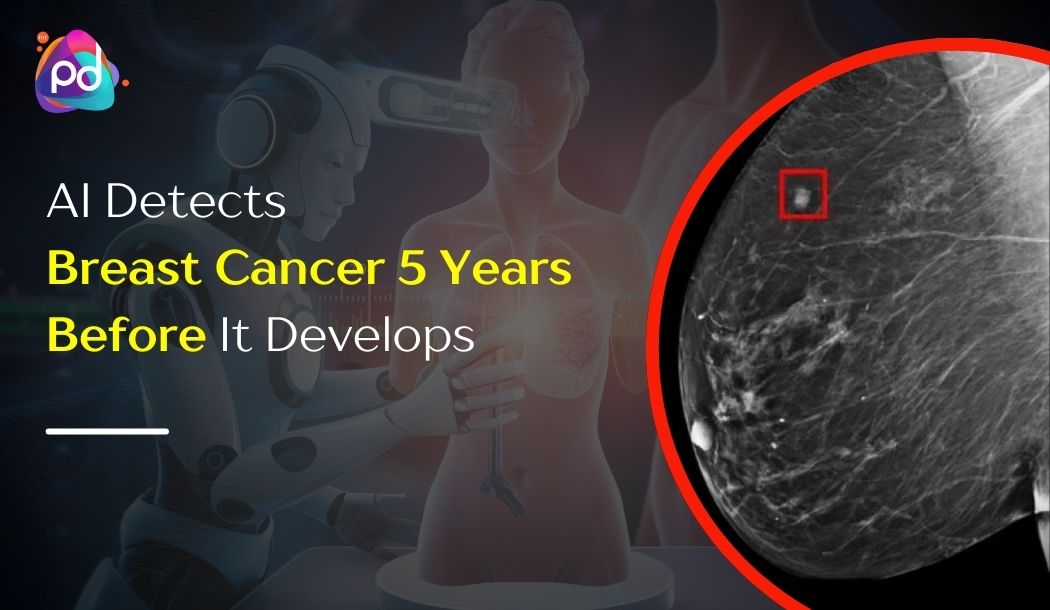
AI Detects Breast Cancer 5 Years Before It Develops:
A Revolutionary Leap in Early Detection
Introduction
Breast cancer is one of the most common cancers among women worldwide. Early detection is crucial for improving survival rates, and traditionally, mammograms have been the primary tool for identifying breast cancer. However, even with regular screenings, some cancers are not detected until they have progressed, which can reduce the effectiveness of treatment. Enter artificial intelligence (AI), a technology that is poised to revolutionize breast cancer detection by identifying potential malignancies up to five years before they develop. This groundbreaking advancement could change the landscape of cancer diagnosis and treatment, offering hope to millions.
The Power of AI in Medical Diagnostics
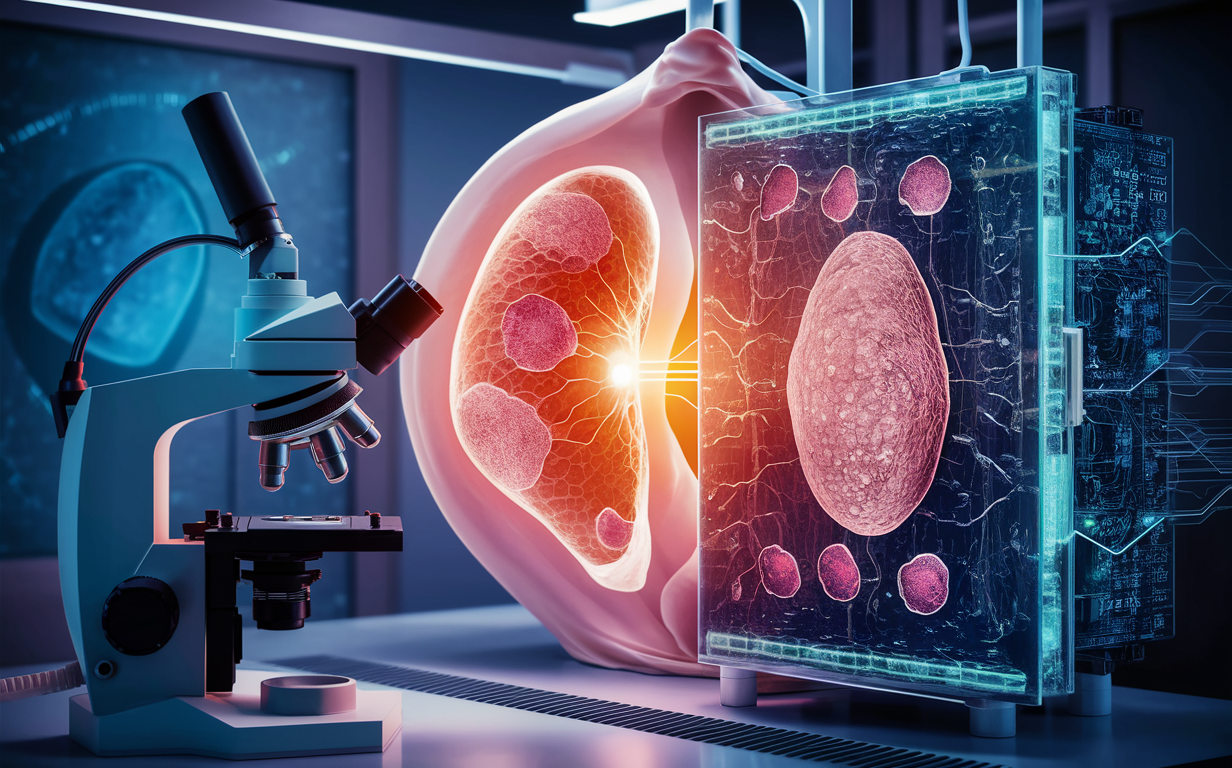
AI, particularly machine learning and deep learning algorithms, has made significant strides in the field of medical diagnostics. These technologies excel at analyzing complex patterns in data, often uncovering insights that are beyond human perception. In the context of breast cancer detection, AI’s capabilities are being harnessed to analyze mammograms and other imaging data with unprecedented precision.
1. Advanced Imaging Analysis
AI algorithms are trained on vast datasets of mammograms and other breast imaging modalities, such as MRI and ultrasound. By processing these images, AI can identify subtle changes in breast tissue that may indicate the early stages of cancer development. These changes might be too small or too faint for human radiologists to detect, but AI’s ability to analyze pixel-level details enables it to spot anomalies that could suggest a future malignancy.
2. Predictive Risk Modeling
Beyond analyzing images, AI can also perform predictive modeling to assess an individual’s risk of developing breast cancer. This involves integrating data from various sources, including genetic information, family history, lifestyle factors, and previous medical records. By synthesizing this information, AI can generate a personalized risk profile and predict the likelihood of breast cancer developing within a specific timeframe, potentially years before any clinical signs appear.
3. Enhanced Accuracy in Dense Breast Tissue
One of the challenges in breast cancer detection is accurately interpreting mammograms in women with dense breast tissue. Dense tissue can obscure potential signs of cancer, leading to false negatives. AI-powered image processing tools can enhance the resolution and contrast of these images, making it easier to identify microcalcifications or other early indicators of cancer. This capability is particularly valuable for ensuring that women with dense breast tissue receive accurate and timely diagnoses.
How AI Detects Breast Cancer Early
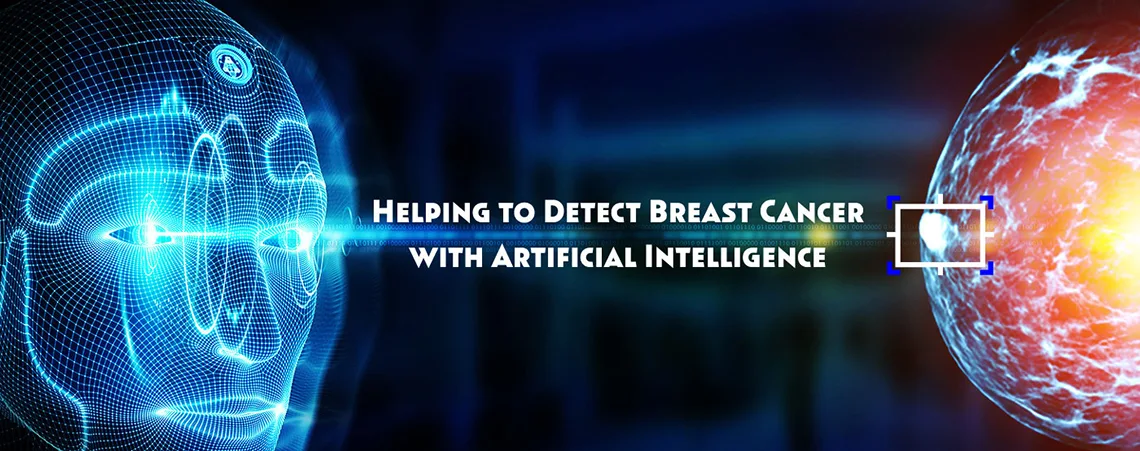
AI’s role in early breast cancer detection is multifaceted, involving the integration of several advanced technologies:
A. Deep Learning Algorithms
Deep learning, a subset of AI, involves training neural networks to recognize patterns in data. In breast cancer detection, deep learning algorithms are fed thousands of mammogram images, both with and without cancer, allowing them to learn what differentiates a healthy breast from one that may be developing cancer. Over time, these algorithms become incredibly proficient at identifying early signs of cancer, even those that are not yet visible to the human eye.
B. AI-Driven Risk Assessment Tools
AI is also being used to develop risk assessment tools that can predict an individual’s likelihood of developing breast cancer. These tools analyze a wide range of data, including genetic markers, hormone levels, and environmental factors, to provide a comprehensive risk profile. This allows for personalized screening strategies, where those at higher risk can be monitored more closely, potentially catching cancer even before it has a chance to grow.
C. AI in Personalized Screening Programs
The integration of AI into personalized screening programs represents a significant advancement in breast cancer prevention. AI can tailor screening schedules based on an individual's risk profile, ensuring that high-risk patients receive more frequent monitoring while reducing unnecessary screenings for those at lower risk. This personalized approach not only improves early detection rates but also minimizes the psychological and physical burden of unnecessary tests.
The Impact of Early Detection
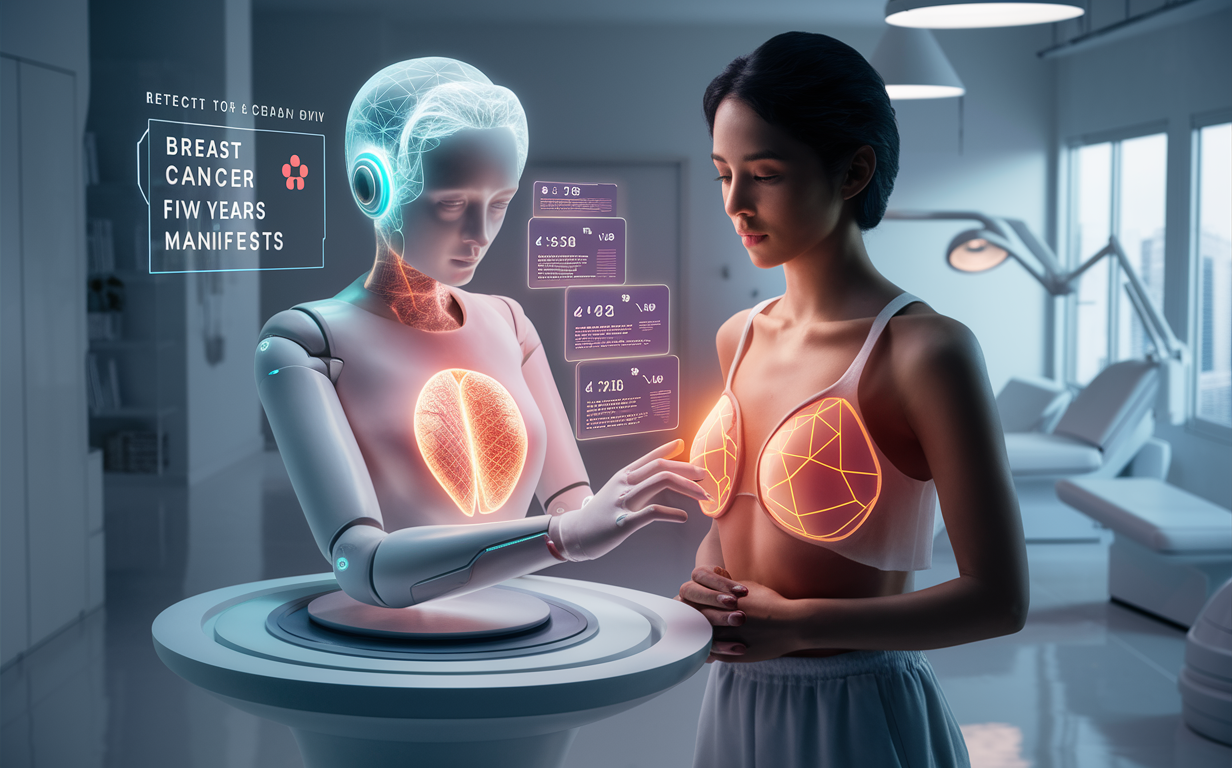
The potential impact of AI-driven early detection on breast cancer outcomes cannot be overstated. Detecting cancer five years before it develops offers several critical advantages:
1. Improved Survival Rates
Early detection is directly linked to higher survival rates. When breast cancer is caught in its earliest stages, the chances of successful treatment are significantly higher. By identifying potential cancers years before they develop, AI allows for earlier intervention, which could drastically improve survival outcomes.
2. Reduced Treatment Intensity
Early detection often means that less aggressive treatments are required. For instance, detecting cancer at a stage when it is not yet invasive may allow for treatments that are less taxing on the body, such as localized surgery or targeted therapies, rather than full-scale chemotherapy or radiation. This not only improves the patient’s quality of life but also reduces the overall cost of treatment.
3. Personalized Medicine
AI’s ability to analyze a wide array of data points allows for more personalized treatment plans. By understanding the specific risk factors and potential cancer development in an individual, healthcare providers can tailor treatment strategies that are more effective and less invasive. This personalized approach to medicine is one of the most promising aspects of AI’s integration into healthcare.
Current Research and Future Directions
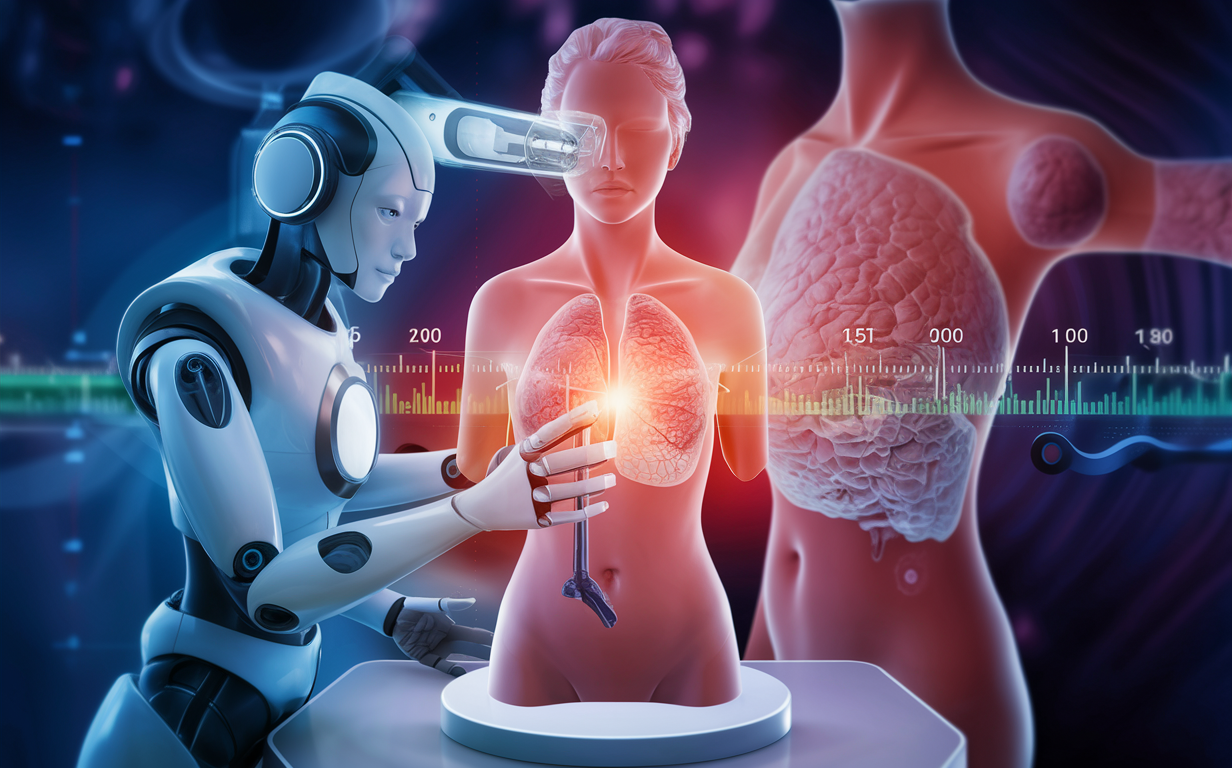
Research into AI’s role in early breast cancer detection is ongoing, with several promising studies highlighting its potential:
A. Breakthrough Studies
Recent studies have shown that AI algorithms can outperform human radiologists in detecting early-stage breast cancer. For example, research published in journals such as Nature and The Lancet has demonstrated that AI can reduce false positives and false negatives in breast cancer screening, leading to more accurate diagnoses. These studies have involved AI systems analyzing mammograms from large, diverse populations, further proving the technology’s robustness and applicability across different demographic groups.
B. Integration with Other Diagnostic Tools
The future of AI in breast cancer detection may involve its integration with other diagnostic tools, such as genetic testing and blood-based biomarkers. Combining these tools with AI’s image analysis capabilities could lead to even earlier and more accurate detection. For instance, AI could analyze data from liquid biopsies, which detect cancer-related mutations in blood, alongside imaging data to provide a more comprehensive assessment of a patient’s cancer risk.
C. Global Implications
The implications of AI-driven early detection are global. In regions where access to skilled radiologists is limited, AI could serve as a critical tool for improving cancer detection rates. This is particularly important in low- and middle-income countries, where late-stage breast cancer is more common due to limited access to screening programs. AI could democratize access to high-quality diagnostics, potentially saving countless lives around the world.
Conclusion
The integration of AI into breast cancer detection is a transformative development in the fight against cancer. By detecting potential malignancies up to five years before they develop, AI offers a new frontier in early diagnosis, personalized care, and improved patient outcomes. As research continues and AI technology evolves, the potential for AI to become a standard tool in breast cancer prevention and diagnosis is immense. This advancement not only promises to save lives but also to reduce the emotional and financial burdens associated with cancer treatment. The future of breast cancer detection is here, and it’s driven by the power of AI.
By embracing these technological advancements, we move closer to a future where breast cancer is detected and treated before it ever has the chance to grow. Stay informed on the latest developments in healthcare and technology by following The Pharma Daily, your source for cutting-edge insights into the world of medicine.




